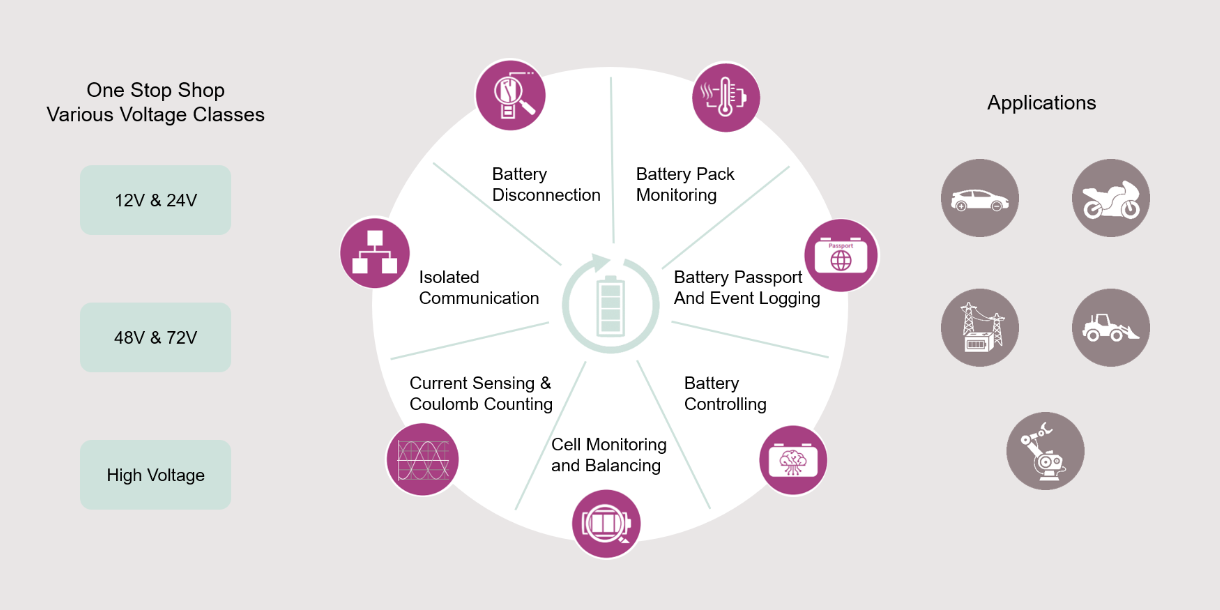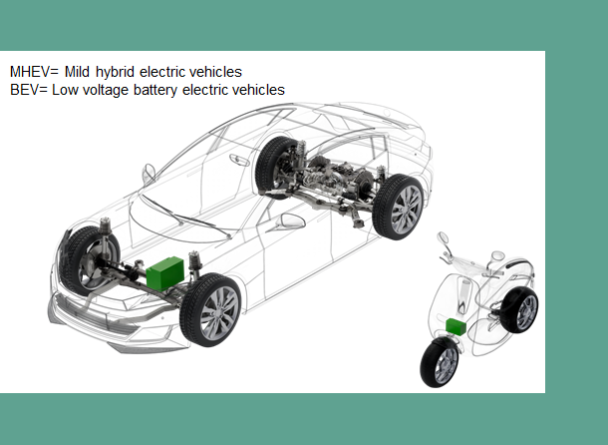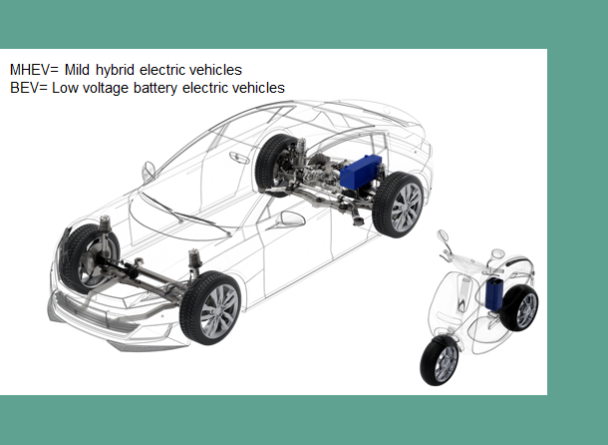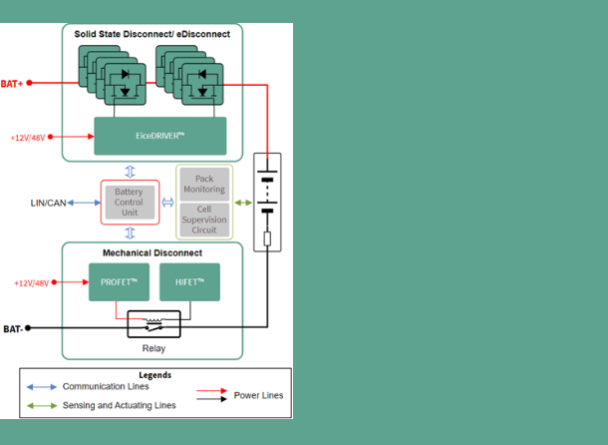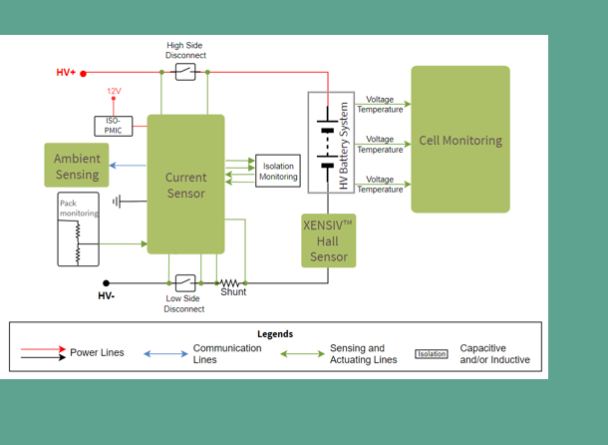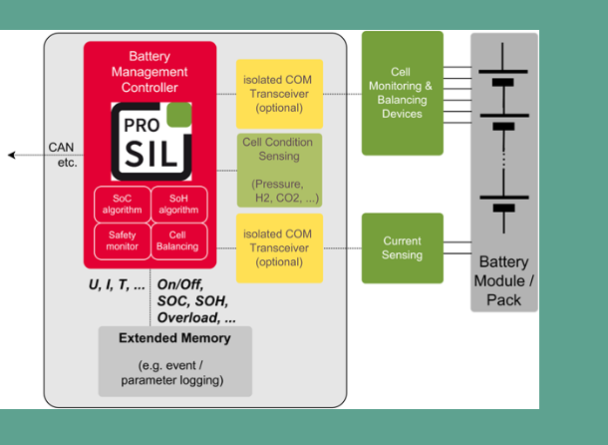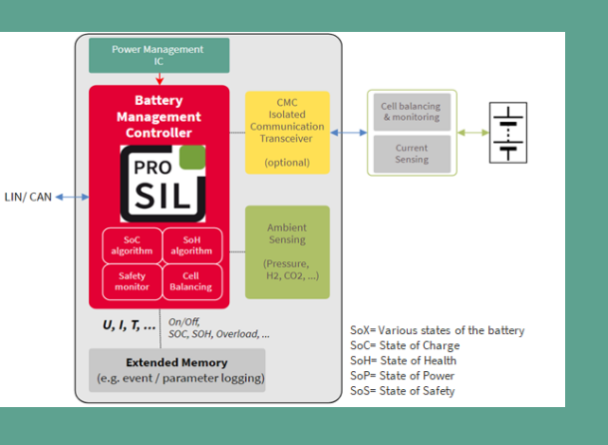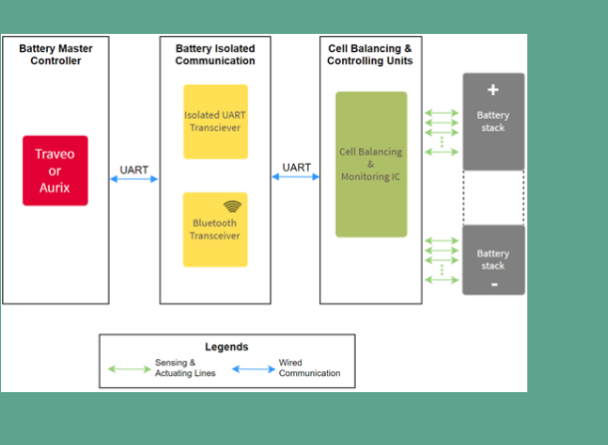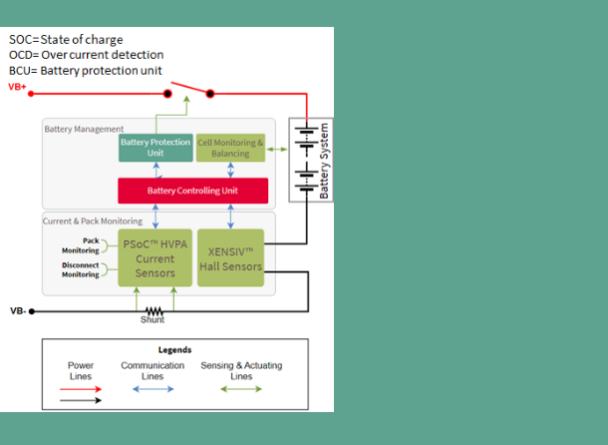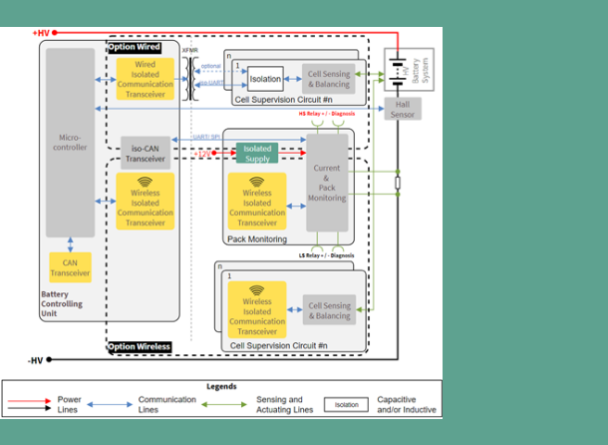Automotive battery management system (BMS)
Accurately monitors, protects, and optimizes electric vehicle (EV) battery performance - revolutionizing driving experience and energy efficiency
Please choose a subcategory
Our BMS platform guarantees up to ASIL D safety level for hardware and software, and supports diverse applications such as industrial, energy storage, commercial and agricultural vehicles (CAVs), low-speed electric vehicles, and electric two and three wheelers.
The BMS platform covers 12 V to 24 V, 48 V to 72 V, and high-voltage applications, including 400 V, 800 V, and 1200 V battery systems.
Monitor, protect, & optimize electric vehicle (EV) battery performance with our battery management system solutions
-
Cell monitoring & balancing:
Measure cell voltages and temperatures, balance the cells, and detect over- and undertemperature as well as voltage events. -
Current sensing & coulomb counting:
Measure current accurately for coulomb counting and over-current detection (OCD). -
Battery Control Unit (BCU):
Calculate battery states SoC, SoH, SoP, and SoS, communicate with the domain controller, and perform housekeeping and firmware updates. -
Battery passport & event logging:
Log vital parameters, track malfunctions, support warranties, and enable battery second life models. Enhance battery performance and proactively condition it. -
Battery pack monitoring:
Detect thermal runaway, monitor battery disconnection, isolation, and overcurrent. Trigger disconnection units when necessary. -
Battery disconnection & protection:
Ensure EV safety during parking, charging, and discharging. Disconnect from charger and monitor disconnection state when triggered by failures or vehicle being off. -
Isolated communication:
Transmit cell information reliably between high-voltage and low-voltage domains using wired (Iso-UART) and wireless (Low-power Bluetooth) topologies.
Enable faster time-to-market with complete automotive battery management system (BMS) chipset
Infineon's automotive BMS platform covers 12 V to 24 V, 48 V to 72 V, and high-voltage applications, including 400 V, 800 V, and 1200 V battery systems.
We offer a complete and scalable battery management system chipset, production-ready complex device drivers with integrated safety libraries, and support up to ASIL-D safety standards. The interoperability and flexibility help you to reduce design effort and speed up time-to-market for a wide range of applications such as:
- Automotive
- Energy storage
- Construction, Commercial and Agricultural Vehicles (CAV)
- Low-speed electric vehicles
- Electric two and three wheelers
Learn more about mild hybrid electric vehicles 48 V (MHEV) and CAV.
Enhance your automotive BMS with best-in-class robustness, compact design & lowest PPM rates
Infineon's highly integrated products significantly decrease the footprint and help the customers to reduce costs by minimizing printed circuit board size. Additionally, Infineon's zero-defect mindset is reflected in the lowest PPM rates in the market and significantly reduces vehicle downtime and returns.
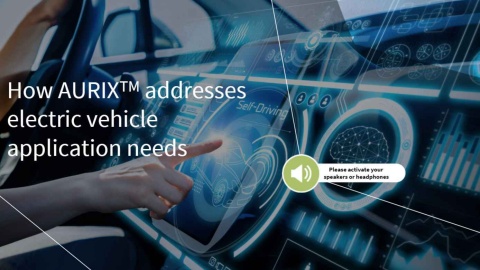
- Get to know how AURIXTMis able to answer the needs of the electric vehicle market
- Recognize and explore how AURIX™ TC3xx addresses key electric vehicle challenges, and understand the main features of the AURIX™ TC3xx microcontroller
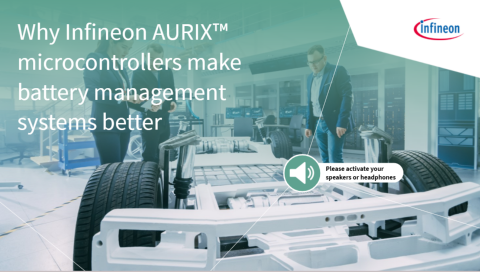
- Understand what a battery management system is
- Recognize the main advantages that Infineon AURIX™ microcontrollers can bring to these systems

- Identify the aspects covered by the battery management system and the main components and their function in the battery management system
- Recognize Infineon’s main components for battery management applications and get familiar with the key features and benefits of Infineon battery management ICs
Webinar

Getting the most out of batteries. By the end of this decade, the majority of new cars sold around the world is expected to have a partially or fully electric drivetrain. Battery management systems have a great impact on the range, cost and service life of electric vehicles, which makes them a key success factor for this mobility revolution. Furthermore, they play an essential role when it comes to second-life concepts that allow former EV batteries to be used as flexible storage for renewable energy, for example.
Dr. Clemens Mueller exclusively explains in-depth market trends and challenges, provides details on Infineon products and solutions, and introduces the new BMS-IC TLE9012AQU.

